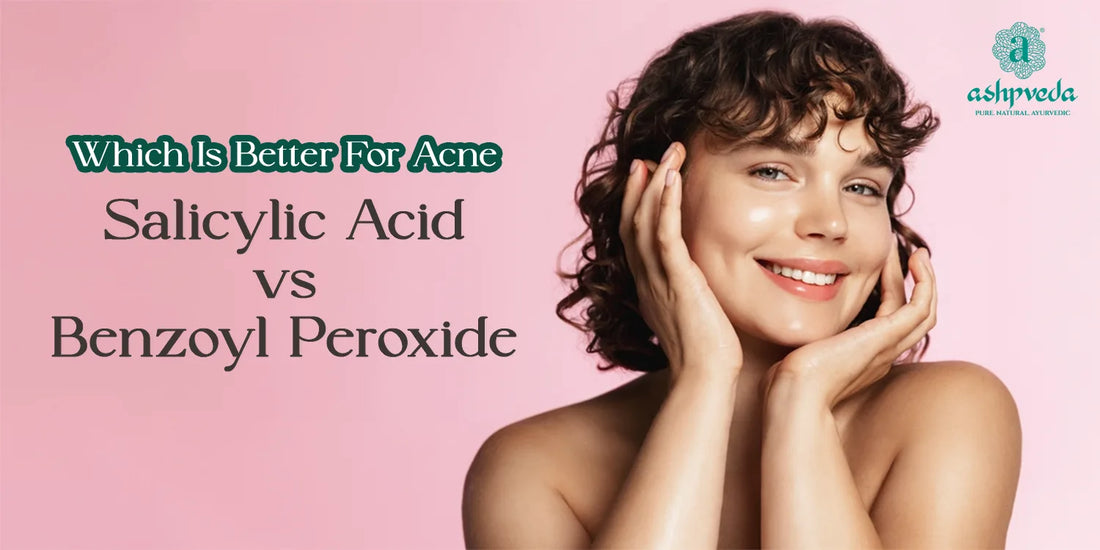
Acne is a common skin condition that affects millions of individuals worldwide. It can be frustrating and sometimes even painful, leading many to seek effective treatments. Two popular options are Salicylic Acid and Benzoyl Peroxide. In this article, we will delve into the characteristics, benefits, and drawbacks of each, helping you make an informed decision about which is better suited for your skin.
Understanding Acne
Before we compare treatments, let's first understand the underlying causes of acne.
Salicylic Acid: The Gentle Exfoliator
1. What is Salicylic Acid?
Salicylic Acid is a beta-hydroxy acid known for its exfoliating properties. It penetrates the pores, dissolving excess oil and dead skin cells.
2. How Does it Work?
Salicylic Acid works by breaking down the bonds between skin cells, allowing for easier exfoliation. This helps unclog pores and prevent further breakouts.
3. Benefits of Salicylic Acid
- Gentle exfoliation
- Clears clogged pores
- Reduces inflammation
- Minimizes blackheads and whiteheads
- Improves skin texture
4. Drawbacks of Salicylic Acid
- May cause dryness or irritation in some individuals
- Less effective for severe acne
Read Also: Difference Between Acne And Pimples
Benzoyl Peroxide: The Bacteria Fighter
1. What is Benzoyl Peroxide?
Benzoyl Peroxide is an antibacterial agent that kills the bacteria associated with acne. It also helps unclog pores and reduce inflammation.
2. How Does it Work?
Benzoyl Peroxide releases oxygen into the pores, creating an inhospitable environment for the acne-causing bacteria.
3. Benefits of Benzoyl Peroxide
- Effective against a wide range of acne types
- Kills bacteria and reduces inflammation
- Available in various formulations
4. Drawbacks of Benzoyl Peroxide
- Can cause dryness, redness, or peeling
- May bleach clothing or bedding
Read Also: Best Soaps for Acne
Choosing the Right Treatment for You
- Mild Acne: Salicylic Acid
If you have mild acne characterized by blackheads, whiteheads, and occasional breakouts, Salicylic Acid may be the better option. Its gentle exfoliation can help clear pores and prevent future breakouts.
- Moderate to Severe Acne: Benzoyl Peroxide
For more severe acne, characterized by deep, painful cysts or widespread breakouts, Benzoyl Peroxide's antibacterial properties can be highly effective in reducing inflammation and killing bacteria.
Combining Treatments
In some cases, a combination of Salicylic Acid and Benzoyl Peroxide may be recommended by dermatologists for maximum effectiveness.
Read Also: How To Remove Acne Scars Naturally
Conclusion
In the battle of Salicylic Acid vs. Benzoyl Peroxide, there isn't a one-size-fits-all answer. It ultimately depends on the severity and type of acne you're dealing with. Consulting with a dermatologist can provide personalized recommendations based on your specific skin needs.
FAQs (Frequently Asked Questions)
1. Can I use Salicylic Acid and Benzoyl Peroxide together?
Yes, but it's best to do so under the guidance of a dermatologist to avoid over-drying or irritating the skin.
2. How long does it take to see results with these treatments?
Results can vary, but you may start seeing improvements within a few weeks of consistent use.
3. Are there any potential side effects?
Both Salicylic Acid and Benzoyl Peroxide can cause dryness, irritation, and redness. It's important to start with a lower concentration and gradually increase if needed.
4. Can these treatments be used on sensitive skin?
Individuals with sensitive skin should use these treatments with caution and choose lower concentrations. Patch testing is advisable.
5. Should I moisturize after using these treatments?
Yes, it's crucial to moisturize to maintain skin hydration and prevent excessive dryness or irritation. Choose a non-comedogenic moisturizer for best results.





